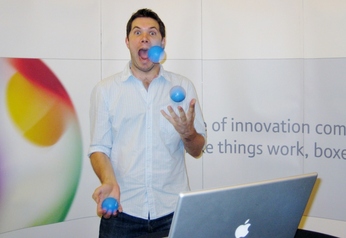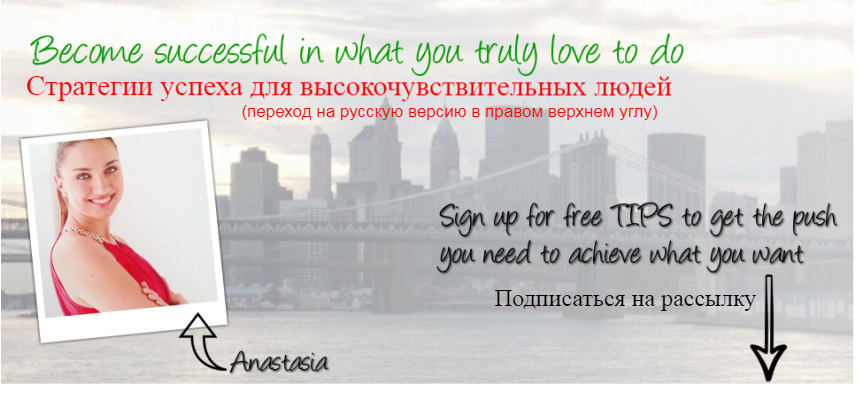
I am a business coach, not a health practitioner. However, I notice a strong correlation between how my clients treat their bodies, their state of mind and their business and career success. One thing that always strikes me is that people who try to do a lot of things simultaneously tend to be the least resilient to stress, suffer from low levels of energy and put more effort to achieve less. This is especially true for avid users of new technologies.
What science tells us
I like to base my work on solid scientific evidence and not just personal experience, so want to share with you some brilliant pieces of research about the negative impact of multitasking I’ve discovered. Scientists became concerned about media multitasking after a few fatal incidents with doctors who multitasked while treating their patients and made serious mistakes causing harm to their patients.
A research from Stanford University suggests that people constantly exposed to electronic information flow suffer from worsened memory and a lack of attention. They also have hard time switching from one job to another, even though they claim they are great at multitasking. Harvard scientists confirm that multitaskers are more likely to make mistakes, ignore important information or keep it in their working memory. As a result, their problem solving abilities and creativity can be diminished.
Yeah, but what can go wrong if I check my smartphone for a second? Everyone does that – and they are no dumb zombies!
True, nothing happens if you do it once in a while (unless you are a doctor working with a patient or in a similar responsible position). Problems arise when you keep doing this over and over again. Thing is, when you get distracted, your brain needs time to go back to what it was doing. The more often you distract it, the more time it needs to recover, and the worse your working memory gets. As a result, your mind doesn’t work anymore as good as it could be and you process relevant information at a slower pace.
Ok, but how does it impact my weight?
When you regularly multitask, you basically undermine your ability to filter information and pick what’s relevant for you right now. As a multitasker, you have harder time identifying when and what you need to eat, and whether you need to change your body posture or go do some exercise. If you have lunch in front of your computer, chances are you eat waaaaay more then you need (and chew worse, too!). If you want to control your craving, stick to your diet and keep exercising regularly, you need to have a well-organized and focused mind that is your ally and tells you what’s worthy of your attention.
I keep repeating it over and over again to all of my clients – you are a whole person, and if you want to be successful, you cannot separate your body from your mind or your actions. The way you behave impacts how you eat, the way you eat impacts the way you think, the way you think impacts how you behave! It’s all looped! (By the way, a perfect phrase to tweet, isn’t it? ;))
How to stop multitasking
So, how can one stop multitasking and make sure they are productive and healthy?
The authors of Organize your mind, organize your life suggest a whole series of steps, but the key one is to work in shifts. Concentrate only on one thing at a time, whether it is eating your lunch or reading your emails, and be fully immersed into what you do. When you switch to the next task, you need to abandon any thought about the previous task, until you get back to it, if you need to. What tends to happen is that we still process something that’s not related to what we are doing right now (i.e. in a meeting I keep on thinking of whether I’ve parked my car in a right place), therefore not making any of the two well! To be present, either go outside and re-park your car, or forget about it altogether.
Those who are part of a strong office culture might find it challenging to stop multitasking altogether, as in spite of strong evidence against multitasking many companies still expect their employees to do so, for example keep their email boxes opened all the time. It is also challenging not to multitask in an open office environment, where distractions are in abundance.
You don’t need though to openly fight against your employer or blame them for making you unproductive – instead of that, consider things you can control in your work vs things you cannot. If you are in control of organizing your communication most of the time, tell your boss and colleagues that you want to run a little experiment, and so will check your email at specific times. Make people feel curious and fun about your experiment, rather than guilty. If you are the boss, you can set up a specific hour when people can come and ask you questions, and agree that they don’t do it at other times (and if they do, they have to pay a symbolic fine that is used for the Friday pub crawl). Your whole day might not become instantly productive, but at least you can make the first steps to become less stressed and more efficient! And fit on top of that, too!
What science tells us
I like to base my work on solid scientific evidence and not just personal experience, so want to share with you some brilliant pieces of research about the negative impact of multitasking I’ve discovered. Scientists became concerned about media multitasking after a few fatal incidents with doctors who multitasked while treating their patients and made serious mistakes causing harm to their patients.
A research from Stanford University suggests that people constantly exposed to electronic information flow suffer from worsened memory and a lack of attention. They also have hard time switching from one job to another, even though they claim they are great at multitasking. Harvard scientists confirm that multitaskers are more likely to make mistakes, ignore important information or keep it in their working memory. As a result, their problem solving abilities and creativity can be diminished.
Yeah, but what can go wrong if I check my smartphone for a second? Everyone does that – and they are no dumb zombies!
True, nothing happens if you do it once in a while (unless you are a doctor working with a patient or in a similar responsible position). Problems arise when you keep doing this over and over again. Thing is, when you get distracted, your brain needs time to go back to what it was doing. The more often you distract it, the more time it needs to recover, and the worse your working memory gets. As a result, your mind doesn’t work anymore as good as it could be and you process relevant information at a slower pace.
Ok, but how does it impact my weight?
When you regularly multitask, you basically undermine your ability to filter information and pick what’s relevant for you right now. As a multitasker, you have harder time identifying when and what you need to eat, and whether you need to change your body posture or go do some exercise. If you have lunch in front of your computer, chances are you eat waaaaay more then you need (and chew worse, too!). If you want to control your craving, stick to your diet and keep exercising regularly, you need to have a well-organized and focused mind that is your ally and tells you what’s worthy of your attention.
I keep repeating it over and over again to all of my clients – you are a whole person, and if you want to be successful, you cannot separate your body from your mind or your actions. The way you behave impacts how you eat, the way you eat impacts the way you think, the way you think impacts how you behave! It’s all looped! (By the way, a perfect phrase to tweet, isn’t it? ;))
How to stop multitasking
So, how can one stop multitasking and make sure they are productive and healthy?
The authors of Organize your mind, organize your life suggest a whole series of steps, but the key one is to work in shifts. Concentrate only on one thing at a time, whether it is eating your lunch or reading your emails, and be fully immersed into what you do. When you switch to the next task, you need to abandon any thought about the previous task, until you get back to it, if you need to. What tends to happen is that we still process something that’s not related to what we are doing right now (i.e. in a meeting I keep on thinking of whether I’ve parked my car in a right place), therefore not making any of the two well! To be present, either go outside and re-park your car, or forget about it altogether.
Those who are part of a strong office culture might find it challenging to stop multitasking altogether, as in spite of strong evidence against multitasking many companies still expect their employees to do so, for example keep their email boxes opened all the time. It is also challenging not to multitask in an open office environment, where distractions are in abundance.
You don’t need though to openly fight against your employer or blame them for making you unproductive – instead of that, consider things you can control in your work vs things you cannot. If you are in control of organizing your communication most of the time, tell your boss and colleagues that you want to run a little experiment, and so will check your email at specific times. Make people feel curious and fun about your experiment, rather than guilty. If you are the boss, you can set up a specific hour when people can come and ask you questions, and agree that they don’t do it at other times (and if they do, they have to pay a symbolic fine that is used for the Friday pub crawl). Your whole day might not become instantly productive, but at least you can make the first steps to become less stressed and more efficient! And fit on top of that, too!
Was it useful?
Get more useful tips by email! Subscribe to my free coaching newsletters!

